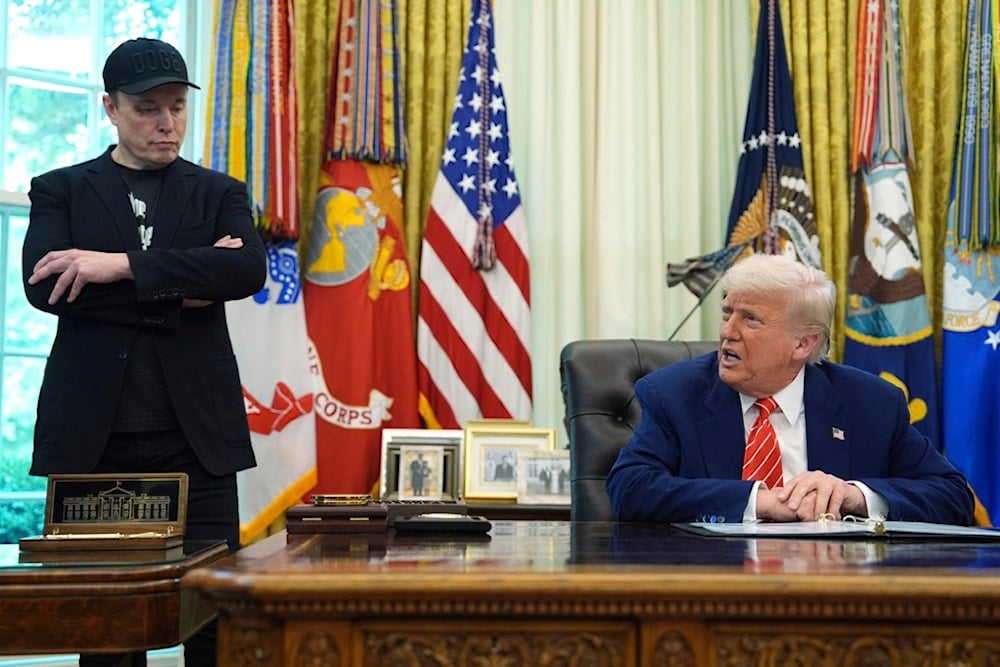Trump–Musk fallout sparks fears over privatized government tools
A Guardian analysis warns that the Trump-Musk feud exposes the dangers of relying on powerful private actors to manage critical public infrastructure without meaningful oversight.
-

US President Donald Trump speaks during a news conference with Elon Musk in the Oval Office of the White House, Friday, May 30, 2025, in Washington (AP)
An analysis published in The Guardian on Saturday examined the sudden and turbulent collapse of the political alliance between Elon Musk and Donald Trump, a split that, according to writer Nick Robins-Early, has escalated into a high-stakes confrontation with potential consequences for US national infrastructure.
Once publicly affectionate in their mutual praise, Musk and Trump have now turned their platforms into battlegrounds, exchanging personal attacks and provocative threats.
Musk, the world's wealthiest man and head of multiple firms with extensive government contracts, accused the president of ties to a convicted sex offender. Trump, in turn, lashed out by suggesting that all federal funding and contracts with Musk's companies should be revoked, claiming it would be a cost-saving measure.
Privatized power
This back-and-forth has taken on the air of political theater, but the implications reach far beyond rhetoric. SpaceX, Musk's aerospace company, is integral to NASA's operations and US defense projects.
Following Trump's threat, Musk briefly announced that he would begin dismantling the Dragon spacecraft fleet, a move that could have disrupted NASA's ability to send cargo and personnel to the International Space Station.
Although he reversed that decision within a day, the episode raised alarms about the vulnerability of public services when they are outsourced to private individuals with volatile dispositions.
Space monopoly
The situation brings renewed scrutiny to Musk's dominance in critical sectors, such as space exploration, military communications, and internet infrastructure. SpaceX, since receiving its first NASA contract nearly two decades ago, has been awarded billions in federal funding.
Today, it is responsible not just for transporting astronauts but also for planning missions to the moon and beyond. The Pentagon also uses SpaceX for launching intelligence satellites, and Starlink, Musk's satellite internet service, has been integrated into some White House communications systems.
The rift also revives concerns about Musk's behavior on the world stage. His refusal in 2023 to let Ukraine use Starlink in Crimea, fearing escalation with Russia, drew widespread criticism and raised the question of how much geopolitical influence a private tech executive should hold.
Unchecked power
Despite these controversies, Musk's influence has only deepened under successive US administrations, even as European allies increasingly seek alternatives to reduce their dependence on Starlink.
His companies remain largely insulated by his personal fortune, allowing him to weather severe financial hits, like the recent $34 billion drop in Tesla's valuation, without losing his position as the richest person on the planet.
Read more: Unvetted Starlink setup at White House sparks security fears: WashPo
Ultimately, the article suggests that the Musk–Trump feud is not just a personal fallout. It's a cautionary tale about the risks of transferring public responsibilities to powerful private actors who operate without meaningful oversight, and about how fragile essential services can become when they depend on individual personalities rather than accountable institutions.

 3 Min Read
3 Min Read










